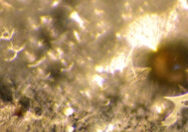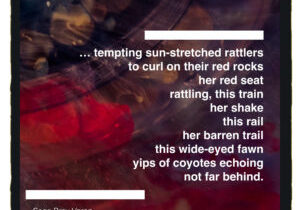For the Joy of It
Two of the biggest joy killers for creative work have got to be self-criticism and striving for perfection. So the question is, why are we being so critical of our work and why do we feel the need for it to be perfect?
I think they both come down to some version of worrying about what other people think. Whether it’s hoping that posting our work will get a lot of likes and comments, or worried about it selling, or just wanting friends and family to be proud of us, when we look outside ourselves for approval and reasons to create, we necessarily bypass our inherent joy mechanisms, giving the keys to our joy to others.
Looking for joy to come from outside ourselves makes it hard to lose ourselves in our work. We end up with underlying ripples of anxiousness and worry that what we’re doing will not be good enough to elicit the approval we are after. The joy we need to find in our work, the kind that keeps replenishing our well of passion and motivation, is the kind we find in a love of the creative process. That joy is all our own.
This is not to say that you won’t occasionally disappoint yourself, but if what you’re doing doesn’t work for you, you can shift gears, work in another form, another style, try a new approach. You have control over that source of joy. You don’t have control over others.
Just think about how children do things. They become utterly lost in their play. They try things out and goof about for no other purpose than to entertain themselves. I think being able to create in that way is a core necessity to not only the joy we get from our work, but in our ability to produce fresh, innovative, and satisfyingly new ideas.
If you are one of those who feels that everything they make must be saleable, I’d like to suggest that you dial that back. Many of us are, sadly, brought up to think that if what we do can’t make money, it’s not worth doing. Or you may feel you need to be validated through good sales, winning competitions or getting published. Those things are nice, but they shouldn’t be the only reason you create. Or the absence of them be the reason you stop creating.
Consider why you do things like going for a hike, taking a road trip, planting a garden, or playing a sport? You’re not (usually) doing that to make a buck or to get recognition. You do them for the joy of it, for the experiences you’ll have, and the memories they’ll give you. Why can’t your creative work have that purpose as well?
So, if you find yourself creating joylessly, take an honest look and see if it’s rooted in the expectations of others. If it is, change gears and start asking yourself what your inner child wants to do, not what others will think of your work. Also, get off social media (so you stop asking yourself why you can’t do the wonderful work you see by others), don’t post any of your work for a while, and then try a new approach or even a new art form. Explore, become a child again, rediscover what draws you to creative work in the first place. Do something outlandish or completely outside your comfort zone. Explore until you find the joy. Chances are, the exploration itself will be full of joy too.
The key to finding lasting joy in your creative work is to look for it in the process of making something exist in the world that never existed before. You add beauty and wonder to the world with that kind of work, even the work that isn’t seen. It adds to the good side of the scales of this world and comes out in the joyful life you get to lead because of it.
Image by Sage with the help of the app, Fluid Simulation.










Absolutely! Key words of creativity are “What if?” And “what now?” and, most important “PLAY!” Sometimes, the phrase, “Oops. Guess I learned something!” but that is a positive thing. Forget social posturing or gallery sales people while you create. If they like it, they will come.
So true! The “what if?” is like a mantra for artists that let their inner child lead. Well said.